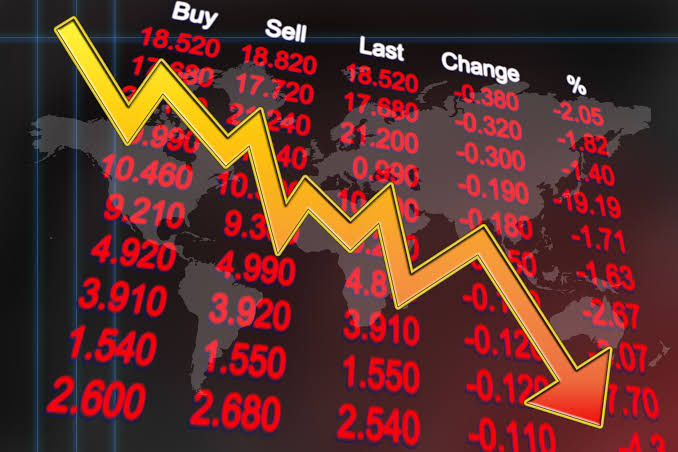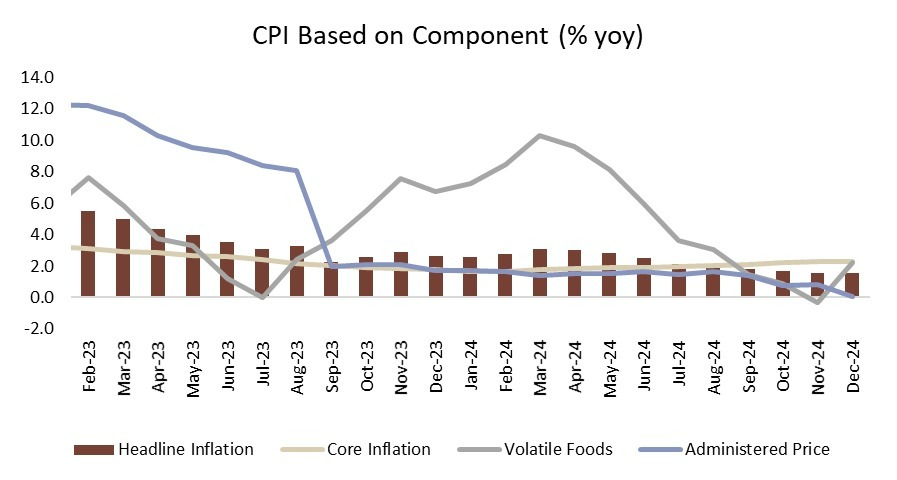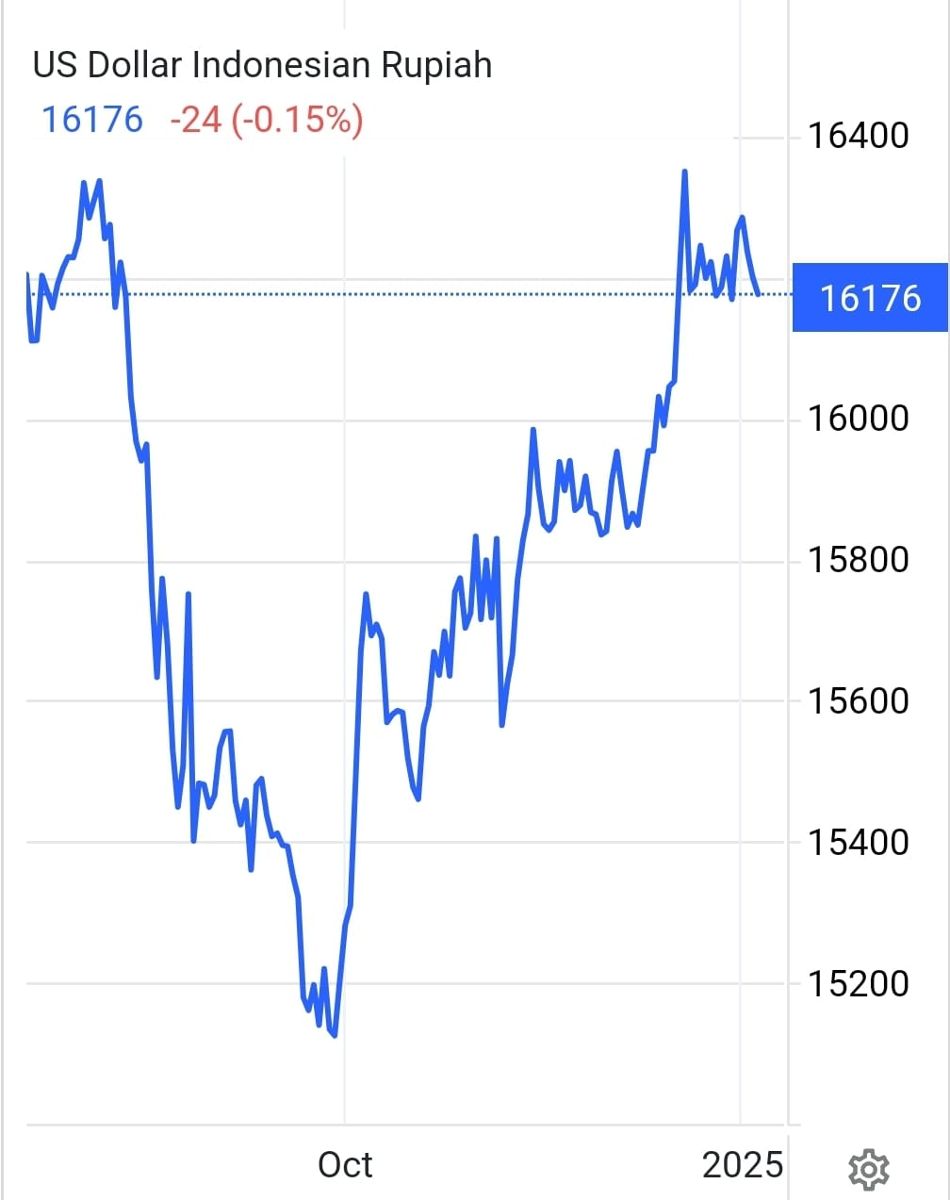Disclaimer
PT Sucor Sekuritas (“Kami”) merupakan perusahaan efek yang telah mendapat izin untuk beroperasi sebagai perantara pedagang efek dan penjamin emisi efek dan telah mendapatkan izin dari Otoritas Jasa Keuangan.
Kami menyarankan Anda untuk menggunakan data hanya sebagai informasi dan membuat keputusan investasi berdasarkan penilaian pribadi mereka. Diskusi mengenai investasi atau rekomendasi mungkin tidak sesuai untuk semua investor. Pandangan pasar yang dinyatakan di situs ini tidak dapat dianggap sebagai jaminan, baik secara eksplisit maupun implisit. Kami tidak menjamin keakuratan, kelengkapan, atau kecukupan informasi, dan tidak bertanggung jawab atas kesalahan, kelalaian, atau hasil yang mungkin timbul dari penggunaan informasi tersebut. Terutama, kami tidak memiliki kewajiban keuangan terhadap Anda terkait penggunaan informasi di situs ini.
Kami, termasuk manajemen dan karyawan Sucor Sekuritas, tidak bertanggung jawab atas ketelitian, keabsahan, dan kebenaran rekomendasi, informasi lain, atau riset. Meskipun kami berusaha untuk menyelidiki informasi secara cermat, kami tidak dapat menjamin keakuratannya. Informasi di situs ini dikumpulkan dari sumber-sumber terpercaya, namun kami tidak bertanggung jawab atas kesalahan atau ketidakakuratan di dalamnya. Prediksi didasarkan pada arah pasar saham atau saham tertentu dan dapat terbukti tidak akurat. Anda disarankan untuk memeriksa keakuratan data dari berbagai sumber.
Segala keputusan investasi yang diambil oleh Anda berdasarkan rekomendasi, riset dan informasinya sepenuhnya merupakan tanggung jawab Anda dan Kami termasuk manajemen dan karyawan Sucor Sekuritas tidak bertanggung jawab atas keputusan tersebut.
Kami tidak mewakili atau mengesahkan keakuratan atau keandalan informasi, percakapan, atau isi di dalamnya, distribusi melalui layanan lain yang ada di situs ini, atau kualitas produk, informasi, atau materi lainnya yang diperoleh melalui informasi tersebut. Semua ulasan dari analis di situs ini hanya bertujuan sebagai informasi.
Kami telah mendapat izin dari Bursa Efek Indonesia untuk menggunakan data mereka, dengan batasan penggunaan untuk keperluan internal/privasi, penyaluran selanjutnya, publikasi, atau reproduksi dalam bentuk apa pun bagi pihak lain dilarang. Situs web ini merupakan sepenuhnya milik Kami dan Kami berhak untuk memodifikasi dan/atau mengubah situs ini.
Anda setuju bahwa Sucor Sekuritas tidak bertanggung jawab atas kerusakan atau konsekuensi tertentu yang muncul dari akses atau penggunaan situs ini. Anda diperbolehkan menyalin, mencetak, atau mengunduh informasi dari situs ini untuk keperluan pribadi dan non-komersial, namun tidak ada hak yang dapat dipindahkan kepada pengguna. Jika Anda tidak setuju dengan salah satu kondisi di atas, kami sarankan untuk meninggalkan situs ini.
Kebijakan Kerahasiaan
PT Sucor Sekuritas (“Kami”) berkomitmen untuk menjaga kerahasiaan atas informasi Anda dan tunduk kepada hukum yang berlaku di Republik Indonesia. Kebijakan ini kami buat untuk selalu menjaga kerahasiaan seluruh informasi Anda.
Selama Anda menggunakan platform yang Kami miliki, maka Anda telah memberikan persetujuan kepada Kami untuk mengumpulkan, menggunakan informasi Anda sesuai dengan syarat dan ketentuan yang telah disepakati antara Anda dan Kami. Kami juga berhak untuk menggunakan, mengungkap, mengalihkan, menyimpan informasi Anda apabila diisyaratkan berdasarkan (i) ketentuan hukum yang berlaku, (ii) perintah pengadilan, (iii) perintah dari pihak yang berwenang dan atas penggunaan Platform ini, Anda telah tunduk kepada segala ketentuan yang tertera dalam Kebijakan ini termasuk pembaharuannya dari waktu ke waktu.
Kami akan memperlakukan dan menjaga informasi Anda sebagai data rahasia, dengan membatasi penggunaan dan penyimpanan data semata-mata untuk memberikan layanan dan memfasilitasi nasabah dalam menggunakan platform Kami.
Kami akan memperlakukan dan menjaga informasi Anda sebagai data rahasia, dengan membatasi penggunaan dan penyimpanan data semata-mata untuk memberikan layanan dan memfasilitasi nasabah dalam menggunakan platform Kami.
Upaya untuk dapat melindungi, mengelola, dan memproses informasi Anda, Kami akan melakukan pengkajian Kebijakan Kami secara berkala. Kami dapat memperbaharui Kebijakan ini untuk memastikan bahwa Kebijakan ini senantiasa konsisten dengan segala perubahan termasuk perubahan hukum yang berlaku.


.jpeg)



Comments